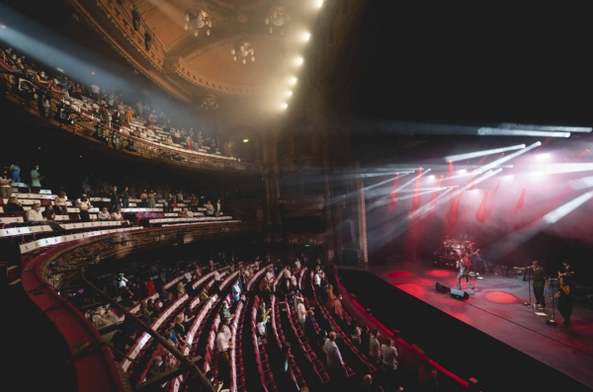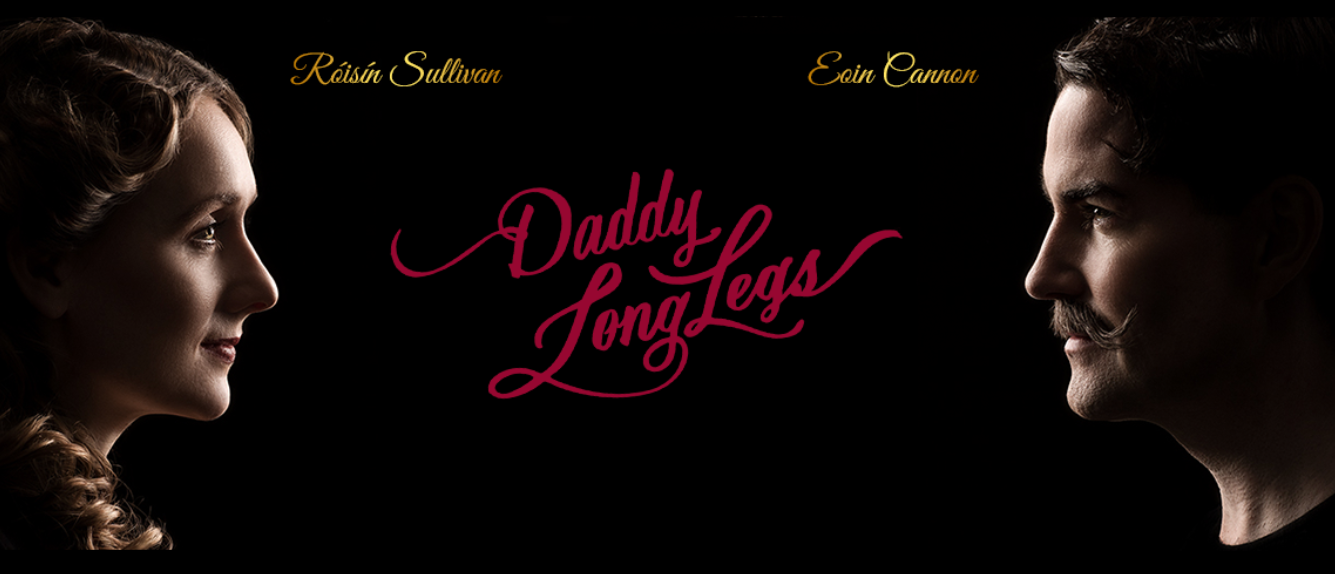There’s no question that, apart from his undoubted brilliance as a composer of instantly memorable melodies, Andrew Lloyd Webber’s greatest gift is as (self) publicist. He’s just wonderful at getting people to speak about him and his shows; and thereby promote them.
As Rebeca Kane Burton, chief executive of his theatre division LW Theatres, told The Stage this week in a feature headlined “365 days later: The inside story of theatre’s darkest year”, written by editor Alistair Smith, Lloyd Webber even has pulling power in the government (he was formerly a Tory peer). “Every time Andrew spoke, something happened either immediately before or immediately after. Policy changed.”
He has spearheaded a campaign to re-open the West End as quickly as possible; as Kane Burton also tells The Stage,
“All credit to both the Lloyd Webbers – Madeleine and Andrew – both of them right from the get-go were focused on how we demonstrated our environment was safe, how we make it safe and how we make the case to reopen. As I was grappling with closing things down, I was already being propelled into thinking about how to reopen.”
It was the London Palladium that first invited audiences in, for one day only, to see a free Beverley Knight concert last July, with socially-distanced seating in place and plenty of safety protocols in place, including temperature checks and hand-sanitising on entry and one-way systems in place in the auditorium.

And then the Palladium also became the first theatre to allow paying customers back, again just for a single day last October, when a production of Jason Robert Brown’s Songs for a New World gave two performances. I attended that — and was slightly alarmed that the socially distancing I’d seen in pictures of the Knight event seemed to be significantly reduced, as I tweeted in a thread at the time:
It turns out that the theatres had persuaded the government to change their requirement from two metres distance between parties to just one metre, “with mitigations” in place; I didn’t have my tape measure to hand on the night, but I could have sworn that the distance from my seat to the person nearest me on my left was less, given that had I stretched out my arm I would have touched him.
This paved the way to a fuller re-opening of many other venues in November, but the gains were short-lived: by the middle of December, England was plunged into another full lockdown, the one we are still in today.
But Lloyd Webber has nonetheless been tirelessly promoting and fighting for the right for theatres to re-open. He made another publicity splash just last week, as I wrote about here, telling BBC Breakfast:
“We’ve got to get theatre open up and down the country everywhere, for all of the actors and musicians and technicians whose livelihood has been put completely on hold now for a year. I’m determined that we open; we’re going to open Jospeh and Phantom and Cinderella in July, whatever it takes, unless there’s some really good reason for us not.”
And this week, on Thursday, he was in the news again, as reported by WhatsOnStage, this time because he will be the subject of a new documentary — called The Show Must Go On — that will follow getting two of his shows back up and running in the Far East — The Phantom of the Opera and Cats.
As Jessica Korovos, Really Useful Group president, told The Stage this week:
“I am in awe of the determination and dedication of The Phantom of the Opera international tour team. Each and every one of them was given the chance to withdraw as lockdowns began in the West, but they all got on planes from all over the world this time last year and opened that show on schedule in Seoul on March 16, 2020. They then kept Phantom running in Korea when the virus was at its global peak. We are pretty sure this made it for a time the only live theatrical production anywhere in the world.”
Lloyd Webber has certainly owned the theatrical narrative — and high ground — around trying to get theatre back. By contrast, Lloyd Webber’s sometimes producing partner and now theatre owning rival, Mackintosh flew significantly below the radar, only re-emerging with the Les Mis celebrity concert staging that quickly sold out its entire run — but then had to be postponed after just a handful of performances in December (it has just announced its return from May 20-September 5).
As Dominic Cavendish reported in an interview in the Daily Telegraph with Cameron Mackintosh, the latter’s apparent inaction allowed
“an unfavourable impression of his modus operandi took hold. ‘Every time I interview someone in theatre the same question keeps coming up: where’s Cameron Mackintosh”, commented the arts correspondent of one Sunday newspaper, in a comment beneath his own coverage of Burns’s news.
Against the charge of putting his feet up, while everyone else sings for their supper, he’s adamant he has been working tirelessly behind the scenes.”
That may well have been from his yacht in the South of France, not helping the optics; but Mackintosh went on to say, “What I’m focused on is getting the full stage shows back. Andrew did a great job but it didn’t need all of us to do that.”
As for the apparent divergent messaging from Mackintosh and Lloyd Webber on the re-opening of their joint production of The Phantom of the Opera at Her Majesty’s — after the original production was entirely stripped out of the theatre — he told Cavendish,
“Before lockdown we opened a fabulous new production in Leicester, which Andrew came to see – and it’s going to go into Her Majesty’s. His company is the co-producer. It was just Andrew being ‘the artist’. When it suits him he’s the lonely artist and when he wants to put on a show he’s the showman. He has always been like that. I just get on with things.”
Ouch. But as the titans of musical theatre slug it out, what’s being ignored — as usual — in all of this is just how they’re far from the only game in town.
As producer Jamie Lambert, of LJ Productions, tweeted in a thread on Thursday evening:
Ironically, it was Lambert’s company who were behind that Songs for a New World mentioned above. And they’d announced a transfer to the Duchess last month, which when it was postponed by the ongoing lockdown, they turned into an online production; they have also created a number of other original productions of musicals for online streaming, including I Love You, You’re Perfect, Now Change, First Date, and BKLYN – The Musical (which will be available from March 22 to April 4), each of which have featured well-known West End names.

Lambert Jackson have also kept a light on for musical theatre throughout this time with Leave a Light On, a series of streamed concerts from the Theatre Cafe that returned for a second season in January (pictured), and featured artists like Rachel John, David Hunter, Lucie Jones and The Voice contestant Lauren Drew.
And producer Adam Blanshay, again working with the Theatre Cafe, has offered the Theatre Channel, a series of magazine shows offering a showcase to West End actors.
Also doing brilliant online work, particularly with new musicals, has been innovative producer/director Adam Lenson, with live streams from Southwark Playhouse of shows performed without an audience; and the wonderful and resourceful Barn Theatre in Cirencester, whose agility has enabled them to just get on with it, especially with original work, where complex rights don’t have to be negotiated first.
Both Southwark and the Barn also re-purposed two productions whose runs had to be curtailed, respectively Jason Robert Brown’s The Last 5 Years (produced by Katy Lipson for Aria Entertainment in association with Edward Prophet and People Entertainment Group) and the Sondheim revue Marry Me a Little, for paid digital transmission, as did Manchester’s Hope Mill Theatre when their revival of Rent had to be similarly closed down after just a handful of performances in December.
Similarly, Curve in Leicester moved their planned staged concert versions of Sunset Boulevard and The Color Purple online (the latter is still available to watch until Tuesday, for which you can book here).

What is also bracing and invigorating about the move online is that, as well as large subsidised operations like Curve or the National Theatre, many more smaller companies have also been to harness a global digital reach for their shows. I’ve just watched Dublin-based Boulevard Productions warm, tenderly sung staging of the intimate, tuneful Off-Broadway musical Daddy Long Legs (pictured above) online via Stream.Theatre, who’ve also recently offered a digital stage to Southwark Playhouse’s The Sorcerer’s Apprentice and tomorrow (March 14) will offer a stream of the 21st WhatsOnStage Awards, from south London’s Turbine Theatre, that I’ll definitely be tuning into.
